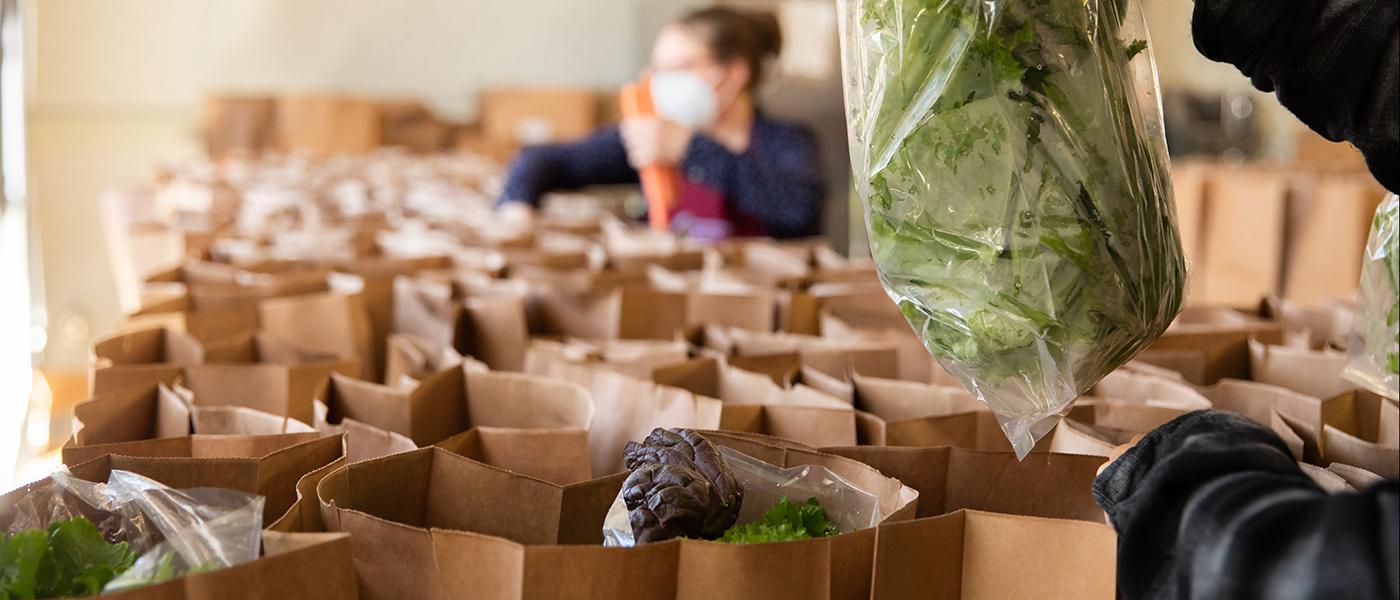Summer 2022 — When Kendal Oetken ’22 picked up her first Beaver Bag from the Basic Needs Center, the weekly free bag of healthy groceries and recipes was a turning point. Cooking healthy food had been a challenge for her. “When the Basic Needs Center gave me these recipes and ingredients, I started cooking, and feeling better, and it was fun,” she says.
But that was just the first step for Oetken. She saw other students getting help signing up for SNAP, Oregon’s Supplemental Nutrition Assistance Program that helps people purchase food when income is low. She didn’t know what it was, or that she’d even qualify for it. Turns out she does, like many other OSU students. The Basic Needs Center helped her navigate the application process, and now she receives a monthly food stipend.
When her basic needs are met, Oetken says she feels better about other aspects of her life. “When I wasn’t eating healthily, it was really hard to concentrate on school. Now I’m able to afford more food, and my mental health is better, too. The Basic Needs Center was very accepting and didn’t make me feel awkward about needing help.”
The center is able to expand its reach with a peer-to-peer model where students help care for their community. “In this climate of intense isolation and rising costs, the Basic Needs Center is here to help students get their basic needs met and learn how to solve problems as they arise,” says Nicole Hindes, the center’s director. “Everyone needs some help along the way, and communities take care of each other.”
The Basic Needs Center offers varied resources for students including a food pantry, a textbook lending program, emergency housing support, and help signing up for SNAP and the Oregon Health Plan. The center itself is designed like a big home, with a welcoming living room with couches and a big kitchen.
Student leaders help their peers learn how to tackle whatever challenge they’re facing — from roommate conflicts to buying a car. The center’s professional and graduate-level staff work together with the student leaders, building relationships and helping students who are experiencing basic needs challenges understand which resources are available on and off campus, and how to navigate the systems.
“The idea that basic needs support should mean a one-on-one meeting behind a closed door with a professional expert who holds the answers is limiting. One person can meet with only so many students in a day. Our peer-to-peer model means we make a broader impact and help more students access the services they need,” said Emily Faltesek, food security programs manager at the Basic Needs Center.
“The future needs students who see themselves as change agents, who have a proven history of impacting their community in positive ways,” Hindes says. “At the Basic Needs Center, we’re empowering students to collaborate with their fellow students and work together in solidarity to figure out hard things.”
